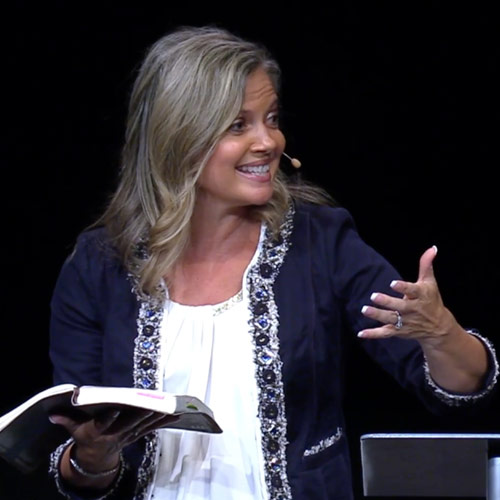Enter His Courts with Praise!
Enter his gates with thanksgiving, and his courts with praise! Give thanks to him; bless his name! Psalm 100:4 ESV
Most of us long to experience God’s presence and power. We just don’t usually choose the path required to get there.
What is that path?
Psalm 100:4 reveals it plainly. We enter His gates with thanksgiving and his courts with praise. If we want close proximity to God, we need gratitude. Sincere thanksgiving and praise for His provision must regularly erupt from our hearts and echo from our lips.
So then, just as you received Christ Jesus as Lord, continue to live your lives in him, rooted and built up in him, strengthened in the faith as you were taught, and overflowing with thankfulness. Colossians 2:6-7 NIV
Our lives are supposed to overflow with thanksgiving. Not once a year, but every day. Beloved, gratitude marks a life rooted in Christ. Built in Him. Strengthened in Him. Lived in Him.
What we choose to offer Him, however, usually resembles grumbling. Not gratitude.
Let’s face it. We aren’t naturally grateful people.
We have to teach our children to say, “Thank you.” They come out of the womb believing they have a right to everything. You’ll hear one word rising above a scuffle of angry toddlers. “Mine.”
If it isn’t theirs, they think it ought to be.
Yes, dear one. Appreciation must be taught. And some of us still struggle to learn it.
We’re self-centered, after all. And that inclination fixes our eyes firmly on blessings we desire instead of praising God for the ones He’s already provided.
Then we end up feeling like Job.
“Therefore I will not restrain my mouth; I will speak in the anguish of my spirit; I will complain in the bitterness of my soul.” Job 7:11
We give voice to our discontent. We think on it continuously. Our hearts become hard.
Beloved, grumbling and complaining emerge from a bitter soul. And bitterness occurs when we believe God should do things differently.
Yet we love to indulge our bitterness. We believe we have a right to it, after all. But Hebrews 12:15 reveals a great danger in clinging to it.
See to it that no one fails to obtain the grace of God; that no “root of bitterness” springs up and causes trouble, and by it many become defiled.
Bitterness defiles many. I’d hate to think that my own bitterness would defile my family. My husband. My children.
But that verse reveals another frightening effect. Bitterness keeps us from God’s grace. We fall short of it. And grace, dear one, is what we’re desperate for.
You see, grace merges the favor of God with life’s circumstances.
Let us then with confidence draw near to the throne of grace, that we may receive mercy and find grace to help in time of need. Hebrews 4:16
Beloved, we find power in Christ’s presence. Help for our needs. In His throne room, we find grace.
But we must approach His throne with the right heart.
Enter his gates with thanksgiving, and his courts with praise! Give thanks to him; bless his name! Psalm 100:4
A grateful heart opens the gate to the courts of the God of grace. It draws us into the presence of the Giver because it sees what He provides. And it’s grateful.
What do you need to thank God for, beloved? Do you bless Him continually for His provision? Or do you more often focus on your lack?
Bitterness robs you of grace, dear one. Don’t let the enemy steal one more blessing God longs to give. Let’s enter His gates with thanksgiving and His courts with praise. Let’s invite Him to fill our hearts with gratitude for all that He is and all that He gives.
When we choose gratitude, beloved, we choose grace.




